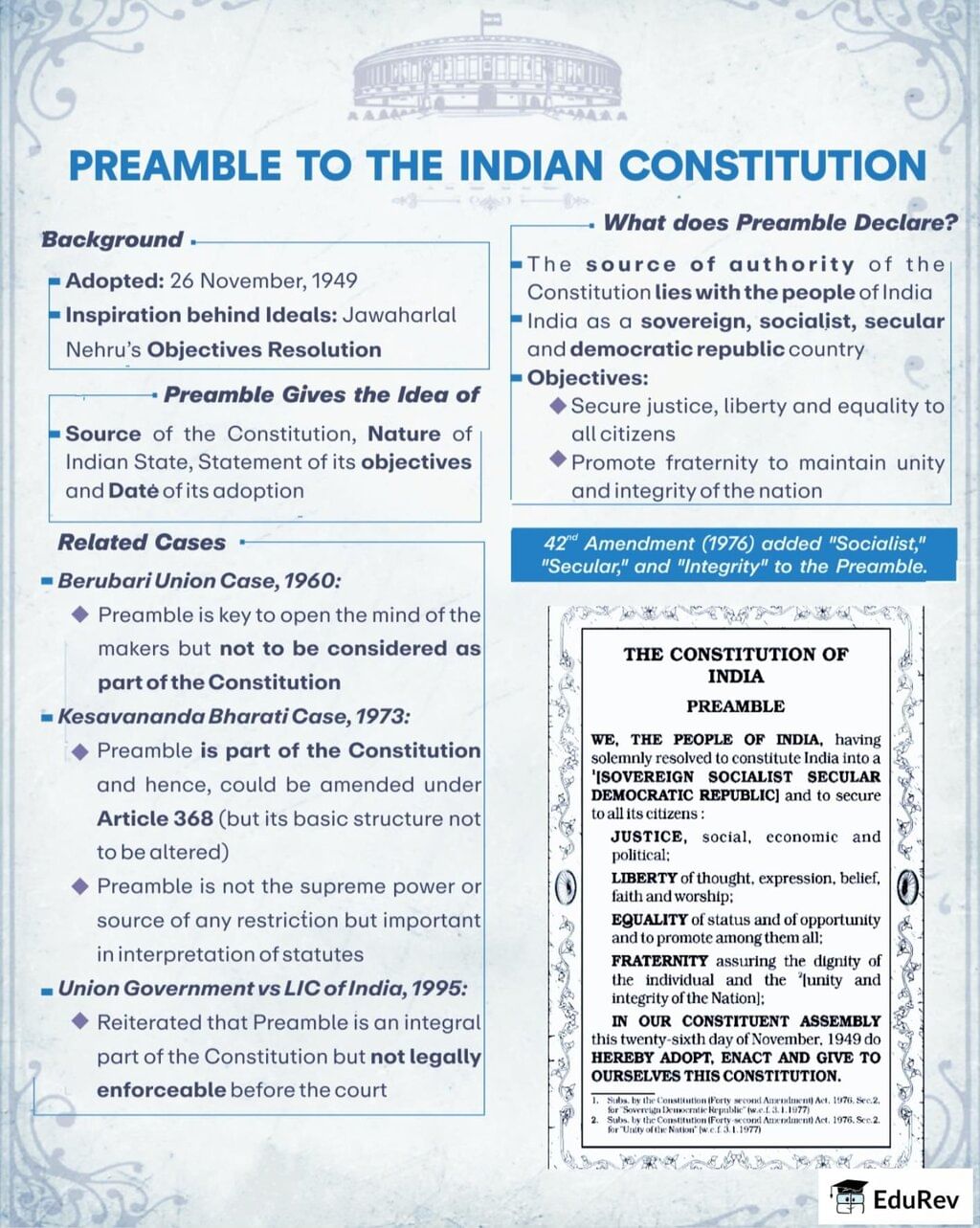UPSC Exam > UPSC Notes > Indian Polity for UPSC CSE > Infographic: Preamble to the Indian constitution
Infographic: Preamble to the Indian constitution | Indian Polity for UPSC CSE PDF Download

The document Infographic: Preamble to the Indian constitution | Indian Polity for UPSC CSE is a part of the UPSC Course Indian Polity for UPSC CSE.
All you need of UPSC at this link: UPSC
|
142 videos|777 docs|202 tests
|
FAQs on Infographic: Preamble to the Indian constitution - Indian Polity for UPSC CSE
| 1. What is the significance of the Preamble to the Indian Constitution? |  |
Ans. The Preamble serves as an introductory statement that outlines the fundamental principles and values of the Constitution. It reflects the aspirations of the people of India and establishes the foundation for justice, liberty, equality, and fraternity. It also emphasizes the commitment to a democratic and secular state.
| 2. How does the Preamble reflect the philosophy of the Indian Constitution? |  |
Ans. The Preamble embodies the core philosophy of the Indian Constitution by emphasizing key values such as justice, liberty, equality, and fraternity. It indicates the intention to secure these rights for all citizens, thereby promoting social, economic, and political justice and ensuring that all individuals have the freedom to express themselves and participate in governance.
| 3. What are the key terms mentioned in the Preamble and their meanings? |  |
Ans. The key terms in the Preamble include "Sovereign," "Socialist," "Secular," "Democratic," and "Republic." "Sovereign" means the state has full control over its affairs. "Socialist" indicates a commitment to social ownership and equitable distribution of wealth. "Secular" emphasizes the separation of religion from the State. "Democratic" signifies the governance by the people through elected representatives, and "Republic" denotes that the head of the state is elected and not a hereditary monarch.
| 4. Is the Preamble part of the Constitution and can it be amended? |  |
Ans. Yes, the Preamble is considered an integral part of the Constitution, although it does not confer any legal rights on its own. It can be amended, but such amendments must respect the basic structure of the Constitution, as established by various Supreme Court judgments. This means that while certain changes can be made, the fundamental principles enshrined in the Preamble cannot be altered.
| 5. How does the Preamble influence the interpretation of the Constitution by the judiciary? |  |
Ans. The Preamble plays a crucial role in guiding the interpretation of the Constitution by the judiciary. It is often referred to by judges to understand the intended purpose and spirit of the Constitution. It helps in resolving ambiguities in constitutional provisions, ensuring that the laws and policies enacted align with the fundamental values and objectives stated in the Preamble.
Related Searches





















